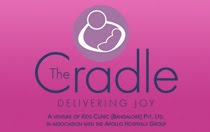
Sunday was one opportunity in a century to mention that unusual set of numbers in the dateline of a letter.
On October 10,2010, commonly written as 10-10-10 across the world, two babies here in the City were born at exactly 10 o’clock 10 minutes and 10 seconds. The couples - Ankitha and Ashish Kumar - Pavithra and Vinod were blessed with the babies.
While some numerologists believe the birth of a child today could be auspicious, others say it has no special meaning. “The number 10-10-10 has no significance on its own. But look at it in relation with occult practices, then the numbers have a lot to say,” said S N Thekur, a city-based numerologist.
According to Thekur, the number 1 in the 10 is the denomination of the Sun. Add the number 1 three times in 10-10-10, then it is 3. “Three is the number assigned to planet Jupiter in the numbers designated from 1 to 9, each to a planet. Jupiter stands for traditional values and Genealogy,” Thekur said.
Towards spirituality
According to the numerologist, those who were born on the day will lean towards spirituality and have a favourable mix in their life with both the Sun and Jupiter playing their part.
Amara Bavani Dev, another noted astrologer believes that the birth of a child on this day could spell ‘good karma’ which has bestowed them to be born on this day.
“People born on this day are very fortunate and will experience a culmination of previous good karma. as the first of the two-digit numbers, 10 also represents a whole new of experiences,” she said.
On the other hand, another City-based numerologist, D Jagannatha Rao believes that the number casts a lot of concerns.
“While the number looks pretty, it signifies a lot troubles later in life. The number of zeros in today’s day shows that the person who is born today will have to do a lot of hard work to succeed,” said Rao.
Whether the children born in the City on 10-10-10 or across the world will have to struggle or will sail through life is a question only time can answer. But on Sunday, it was a day of celebrations for the two families who added a new member to their family and lives.





